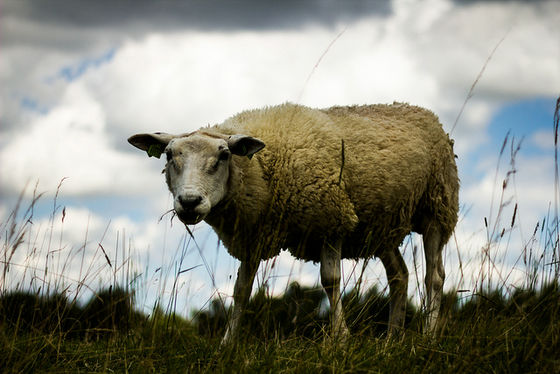Clone sheep Dolly clone sisters turned out not to have a shortened lifespan

ByMark A Coleman
The dolly of world famous clone sheep as the "world's first mammalian somatic cell clone" is short-lived than a general sheep, so that it can be considered that "clones have a shortened lifespan?" became. However, in the latest research, Dolly's clones and sisters have found that their lifespan is not shortened, and the idea of "clonality = short-lived" has been destroyed.
Healthy ageing of cloned sheep: Nature Communications: Nature Research
http://www.nature.com/ncomms/2016/160726/ncomms12359/full/ncomms12359.html

Dolly the Sheep's Fellow Clones, Enjoying Their Golden Years - The New York Times
http://www.nytimes.com/2016/07/27/science/dolly-the-sheep-clones.html

The normal, boring life of a clone: Dolly's cloned cohort hits old age | Ars Technica
http://arstechnica.com/science/2016/07/the-normal-boring-life-of-a-clone-dollys-cloned-cohort-hits-old-age/

Twenty years ago from now, in July 1996, a clone sheep Dolly was born at the Rosslyn Institute in Scotland. The female clone sheep · dolly will become famous worldwide as the world's first mammalian somatic cell clone. Dolly became the most famous sheep in the world, but its lifespan was very short.
Dolly suffered from osteoarthritis with abnormal youth and researchers speculated that "Dolly is rapidly aging." Indeed, on February 14, 2003, Dolly will have progressive lung disease at the age of 6.5 and will eventually be euthanized. This is about half of the average life expectancy of the sheep of Dolly's Finnish-type sheep, which leads to the idea that "clones have a shorter lifespan". However, on the farm of the Rosslyn Institute where Dolly was living at that time, it seems that other sheep suffered from a similar disease, so what Dory prematurely died is "not related to cloning" An opinion was born, and it has long been debated which of the scientists is the truth.

ByToni Barros
However, research results supporting the idea that "there is no relationship between cloning and short life span" was announced in July 2016. The research result was published by Kevin Sinclair of the University of Nottingham's developmental biologist, and the research team breeds 13 cloned sheep and conducts a series of tests until old age "clone Sheep reveal that she not only is healthy, but also fully aged like a normal sheep. "
In this study, we examined the health status of 13 cloned sheep as subjects, but 4 of the subject cloned sheep were used to generate dolly of cloned sheep and It is said to be Dolly's "one eggy cloned sister" made from exactly the same "mammary cell line". These four are named Debbie, Dennis, Diana and Daisy respectively and were born in July 2007, but even when they became 9 years old (equivalent to 70 years old in July 2016) in July 2016, they also had a healthy condition It seems to be keeping. In addition, except for four clones of Dolly sisters, it is a clone sheep created from another cultured cell.
Thirteen cloned sheep who became subjects were examined for blood pressure · diabetes · muscle and bone strength etc. to examine age related diseases of cloned animals, except for Debby, one of Dolly's clones and sisters It has become clear that it keeps a normal number, that is, a healthy state. Debbie is said to be a "small exception", but he said he suffered from mild arthritis, it is not unusual for sheep of the same age. It is said that Debbie is currently taking ibuprofen at breakfast to alleviate the symptoms of arthritis.

ByLennart Tange
NPRIn an interview with Mr. Sinclair commenting that Dolly, a cloned sheep, had died earlier, Mr. Sinclair said "It can be said that it is just bad luck". Also, Charles Long, a scientist at Texas A & M University who responded to the New York Times interview, said "This research has clearly changed our perception of clones that we have hitherto" I will.
Related Posts:







